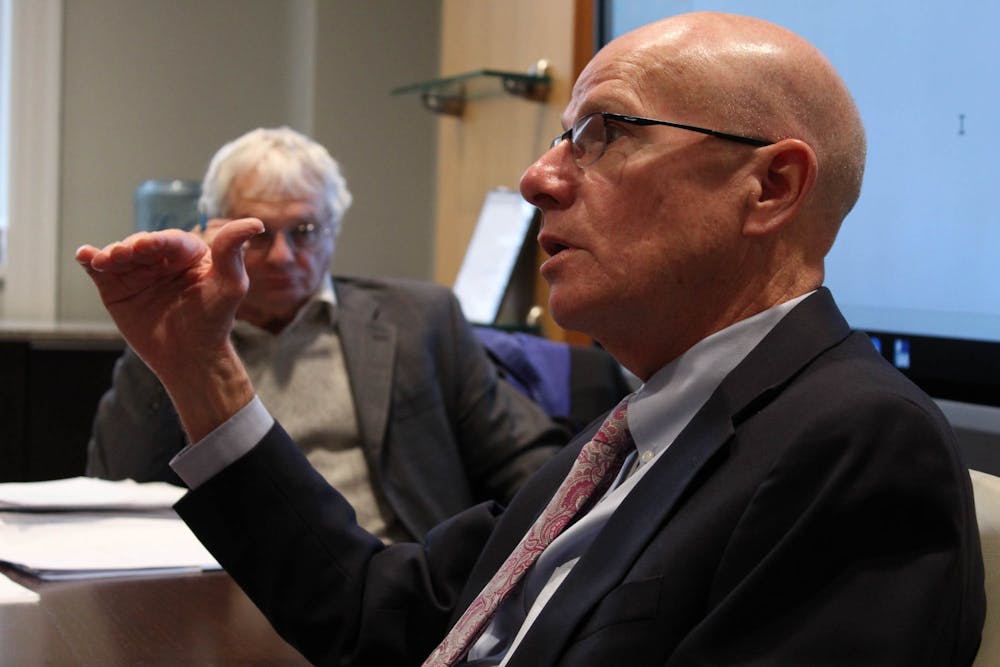Members of the Faculty Executive Committee gathered Monday to discuss topics including the student population for the fall, the letter sent by the Orange County Health Department and new technology the University is considering employing in light of the COVID-19 pandemic.
Orange County Health Department letter
Robert Blouin, the executive vice chancellor and provost, addressed the largely publicized letter from the Orange County Health Department recommending, at minimum, five weeks of online instruction and restricting on-campus housing.
Blouin said that he discussed the letter with Orange County Health Director Quintana Stewart and Medical Director Erica Pettigrew that morning. Stewart and Pettigrew spoke with Chancellor Kevin Guskiewicz separately to talk about the letter on Friday, Blouin said.
“(Guskiewicz) was quite satisfied with our original presumption that this was not in any way a mandate, or an edict, or a call to immediately act — but rather a letter from one CEO to the other in a friendly and cordial way,” Blouin said.
After the letter was released, Blouin said he had another meeting with Chancellor Guskiewicz, Stewart and Pettigrew.
“They indicated to us that it was a letter really directed to Kevin as more of a personal communication,” Blouin said. “I asked Quintana explicitly, 'Did she expect us to share this letter openly as an open communication?' She said no, that was not her intent and that she certainly did not expect us to do that as a consequence of that communication.”
Blouin then acknowledged the criticism faced after the release of the letter.
Blouin said that though they did consider a delayed start, they decided against it due to timing and the expectations of students.



